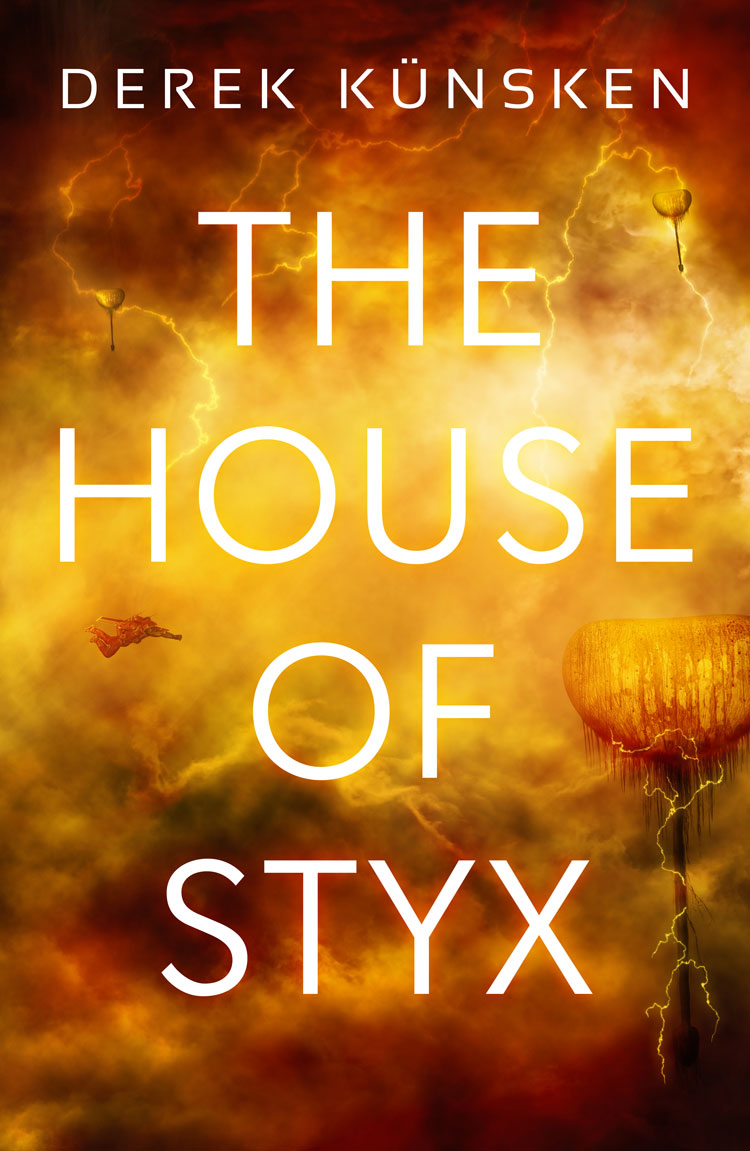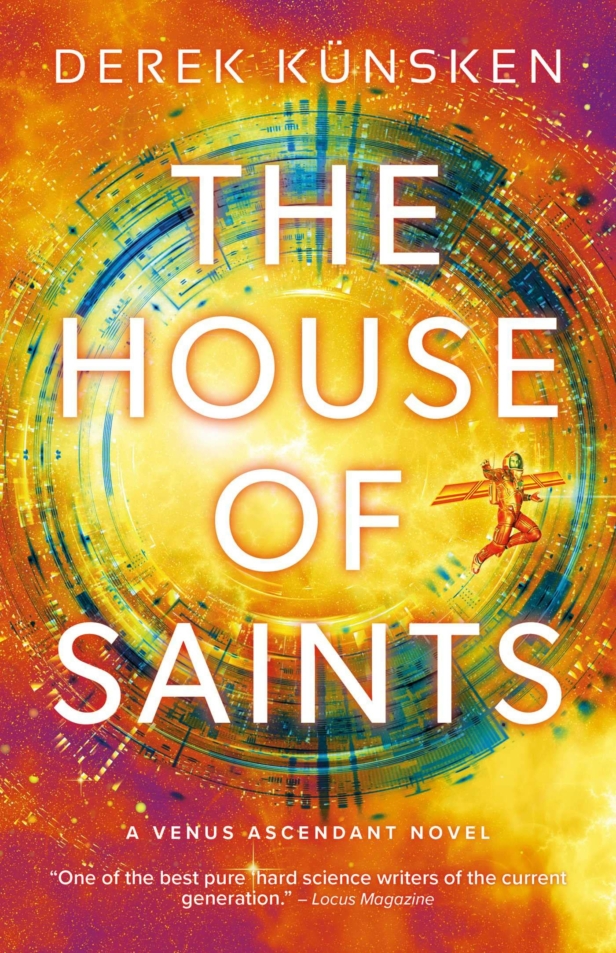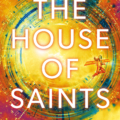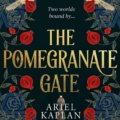We gave Derek Künsken’s space opera The House Of Styx five stars in our review of it back in 2020, calling it an “exhilarating and heart-breaking journey of discovery”. Now, Künsken is back with the book’s highly-anticipated sequel, The House Of Saints.
In the follow-up novel, George-Étienne and his children have formed The House of Styx, after finding a mysterious artefact on the surface of Venus herself. But with the discovery comes great risk, not only from a planet that kills with its very touch but also from the banks and powers of old Earth, who will stop at nothing to claim this new technology for themselves.
We sat down with Künsken to discover his process of building such epic worlds, how this duology differs from his Quantum Magician saga and what he has coming up next…
How does it feel to have concluded the story, there’s such emotion in the book, do you find yourself caught up in it at all?
First of all, thank you! Yes, I’m definitely caught up in the sweep of it. professional risk, maybe? That makes it hard to see the whole at once. I’ve noticed that I often am not able to say how I feel until I get to listen to the audiobook without any further responsibility for making changes. But as I was editing and polishing in early 2023, there were certainly moments and scenes and bits of dialogue that got to me and had me pausing to just feel, which doesn’t always happen with every story.
Knowing the story was a duology, did you approach House of Saints and House of Styx different to the Quantum Magician saga?
I totally approached it differently, but not because of the number of novels. Quantum Magician was a heist in space in the far future, so it has specific concerns and fun beats that have to happen to make it work. I approached House of Styx and House of Saints from the characters and their conflicts with each other, the government, and bank because a family saga works for different reasons and with different ingredients. The two books of the duology are a single story really, a bit like the Godfather and Godfather II are a single story. I think that the Quantum Evolution books are almost independently readable in a way that the Venus books are not.
No one in the book is safe and there are some pretty pivotal deaths, without spoilers, what’s it like having to kill off characters that you’ve spent so long creating?
I think I felt a bit of sadness though, with each death. This is why I don’t kill characters very often. To portray a character well, I think that I have to be able to imagine what it’s like being them, and what it’s like being around them. That does take time and energy and an ability to see their possibilities, and their futures, including white picket fence endings. When they don’t get those futures, there’s a feeling of loss. I had some push back from my writers’ group, my agent, and my editor, and eventually I changed the fate of one character (they lived).
The House Of Saints takes us on an enormous journey both in terms of plot and emotional arcs, how do you approach tackling something so epic? Do you know the ending before you start? Or do things evolve naturally as you write?
Thank you for calling it epic! I actually don’t write anything without knowing the ending – novel, novella, short story, comic book. Early on, I used to pants it (the term some writers use for the process of “writing by the seat of your pants”), but I failed so often that I started writing less because I worried the effort and words were just going to be wasted. Knowing the ending gets me through moments of shaky confidence. For this two-book story, I knew where Saints had to end for Venus the colony to become Venus the capital of the Congregate by the time of the Quantum Evolution series. Who survived to the end of Saints and how they got there was a lot of puzzling and pondering with flip chart paper over days and weeks before I started writing. I usually get impatient at the outlining stage, so by the time I have a 75% complete outline, I just start writing. I trust that I’ll figure out the rest as I go.
Part of the plot revolves around building a base on the surface of Venus. What was the biggest challenge for you in anchoring such a technical process in reality while also keeping it an engaging read?
To write the two Venus books, I needed to know some chemistry, some meteorology, some naval engineering, some aerodynamics, but the rest was a lot of mechanical elements. How to drop something through the atmosphere and land it in a certain place is more of an engineering problem than a scientific one, for example. You’re right that keeping it an engaging read is the challenge – there’s not a lot of emotion in welding. I found, in pure writer trick terms, that just cutting a lot of the detail helped, as did focusing on the “man vs nature” essence of the conflict. But it didn’t hurt that the characters who built the base on the surface were also going through a difficult emotional moment too.
In The House of Saints, the political landscape created in The House of Styx becomes far more prevalent with corrupt governments, false imprisonment, murder and rebellion playing key roles. How important was it to weave these concepts into a story that could have typically just been about the exploration of Venus?
I think “man vs nature” conflicts are cool (and my first foray into Venus in the novelette Persephone Descending was very much that) but ultimately there’s only so much you can do with man vs nature. I’d always envisioned the creation of a state to be messy, and the way the Venusian state is born will determine some of its destiny in the later centuries. People on Venus want different things. Some of them are willing to go to great lengths to achieve them, sometimes down the wrong path, but for the right reasons. That’s humanity, and ultimately science fiction is about using the future to talk about our humanity in the present.

For The House of Styx, you cite Kim Stanley Robinson’s Red Mars as a source of inspiration, what books were touchstones for you in concluding the story?
It’s weird. I often have books in mind for loose inspiration, but I don’t know if any particular book helped frame my thinking in Saints. I do think that the Godfather movies informed some of the feel and the family dynamics I wanted to dig into. Maybe it’s just that to me Styx and Saints are a single story?
Last we spoke you were re-reading all of X-Men and blogging about it. What are you reading now?
I have a new baby, so time is at a premium. I listen to a lot of podcasts about comic books (as always). Some great ones are Marvel by the Month, Bronze Age Monsters, Graymalkin Lane, Cerebro, X-Men Unraveled, Voice of Latveria, Oh Gosh Oh Golly Oh Wow, and some others. I tend to start at episode one and listen to the whole podcast corpus, and on some of them, I’ve stalled on because I haven’t caught up on the Krakoa X-Men (I want to read all of it), and I’m avoiding spoilers. On novels, I listen to a number at once and pick them up depending on mood. I’m reading Revenant Gun by Yoon Ha Lee, Consider Phlebas by Iain M. Banks, House of Chains by Steven Erikson, rereading A Memory Called Empire by Arkady Martine, Comfort Me With Apples by Cat Valente, and Princess Floralinda and the Forty-Flight Tower by Tasmyn Muir. Obviously, it takes me some time to finish a book…
The House of Styx and The House of Saints both fall into the same world as the Quantum Evolution series (with a very helpful timeline in the back of the book). Do you have plans to fill out the entire timeline? Or are you looking to step away from this universe for your next adventure?
I want to write The Quantum Temple—I’m outlining it right now. Temple will conclude the Quantum Evolution series. I’m not sure what to do afterwards. I’ve got a couple of novels in editing phase – an epic fantasy and a horror novel. I have ideas for other things like novellas, but I think it will take some time for me to figure out what will be best. And, somewhere in there, I’d like to write comics as well. I’m done some comic work for small press, but comic books are a deep and abiding love since I was ten years old.
The House Of Saints by Derek Künsken is out now. Order your copy here.




